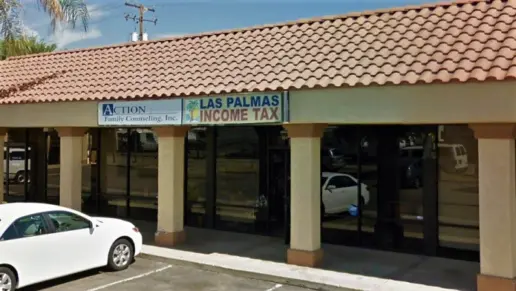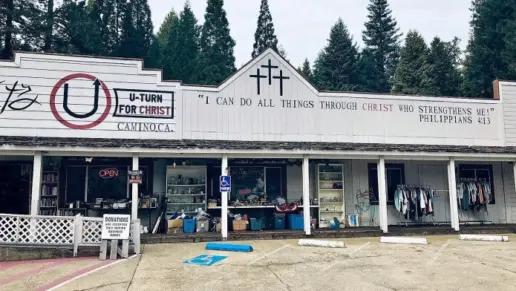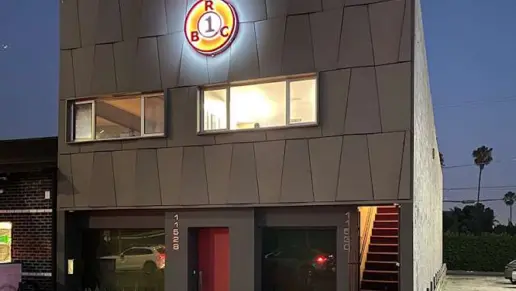Great sober living home and great environment. Only have to follow a few simple rules and respect others in the house. I attend five in-house meetings per week, and three outside meetings per week. The house managers are fair and reasonable. I have to submit to drug testing ...
About Valley Sober Living Recovery Homes
Valley Sober Living - Madison House in Stockton, California is a men’s only sober living home. It is one of the Valley Sober Living Homes facilities that serve both men and women in the Stockton area. Some homes are coed residences.
The Madison House sober living home is a spacious Victorian-style home located in a residential neighborhood near downtown Stockton, the marina, Delta College and many restaurants and shopping options. It is easily accessible to several AA and NA meetings. The home offers washers and dryers and wireless cable TV service. Sober homes also traditionally provide shared bedrooms and baths, plus shared kitchen facilities. In addition, the sharing of household duties is expected, and random drug tests may be required. The length of residence at a sober living home can be from a few months to one year.
Valley Sober Living – Madison House accepts cash payment. Clients who require additional medical, mental health or addiction recovery services will be referred. Many major insurers, such as Aetna, BlueCross/BlueShield, Cigna, Magellan, Humana and United Healthcare, cover some or all the costs of mental health and addiction recovery services when these are determined to be medically necessary. To verify whether your coverage might apply, you should contact your provider. Out of network benefits often vary.
Rehab Score
Gallery
Other Forms of Payment
Private insurance refers to any kind of healthcare coverage that isn't from the state or federal government. This includes individual and family plans offered by an employer or purchased from the Insurance Marketplace. Every plan will have different requirements and out of pocket costs so be sure to get the full details before you start treatment.
Self-pay involves paying for treatment out of your own pocket. You can use savings or credit, get a personal loan, or receive help from family and friends to fund your treatment. If you don't have insurance or your insurance plan doesn't cover a specific program, self-pay can help ensure you still get the care you need.
Addiction Treatments
Levels of Care
Treatments
The goal of treatment for alcoholism is abstinence. Those with poor social support, poor motivation, or psychiatric disorders tend to relapse within a few years of treatment. For these people, success is measured by longer periods of abstinence, reduced use of alcohol, better health, and improved social functioning. Recovery and Maintenance are usually based on 12 step programs and AA meetings.
Drug rehab in California teaches participants constructive ways to stay clean and sober. Treatment revolves around helping individuals stop using the substance they are addicted to and learn healthy habits to avoid relapse.
Opioid rehabs specialize in supporting those recovering from opioid addiction. They treat those suffering from addiction to illegal opioids like heroin, as well as prescription drugs like oxycodone. These centers typically combine both physical as well as mental and emotional support to help stop addiction. Physical support often includes medical detox and subsequent medical support (including medication), and mental support includes in-depth therapy to address the underlying causes of addiction.
Substance rehabs focus on helping individuals recover from substance abuse, including alcohol and drug addiction (both illegal and prescription drugs). They often include the opportunity to engage in both individual as well as group therapy.
Programs


Clinical Services
Group therapy is any therapeutic work that happens in a group (not one-on-one). There are a number of different group therapy modalities, including support groups, experiential therapy, psycho-education, and more. Group therapy involves treatment as well as processing interaction between group members.
Individual therapy for drug addiction includes a customized treatment plan that considers your history and life circumstances. During your therapy sessions, the therapist helps you uncover underlying issues and triggers for addictive behavior that support a holistic approach to recovery.
Life skills trainings involve all the skills a person must have in order to function successfully in the world. These include time management, career guidance, money management, and effective communication. Truly successful addiction recovery is based on the ability to not only live substance-free, but to thrive. Life skills teaches the practical necessities of functioning in society, which sets clients up for success in life, and therefore sobriety.
Substances can prevent the absorption of nutrients and cause damage to your body's systems. Nutrition therapy in California addresses the deficiencies in vitamins and minerals that are caused by substance abuse.
Amenities
-
Wifi
-
Residential Setting
-
Private Setting
Staff

CEO

Founder
Contact Information
1427 North Madison
Stockton, CA 95202


